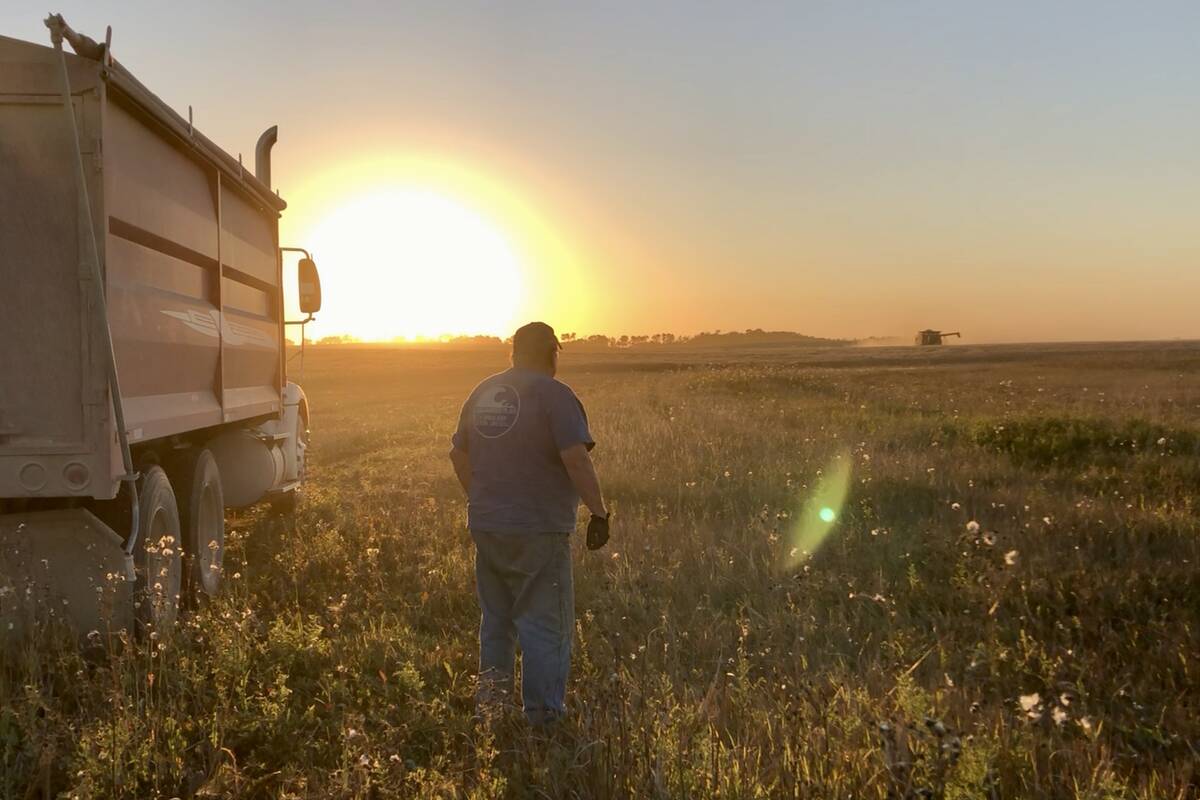I am not sure that we are taking depression as seriously as we should.
We tend to look at it as if it was a personal weakness, and we are often guilty of assuming that if a person who is depressed had more personal fortitude, the depression would go away.
The truth is that depression is a disease. Not only is it a disease, but it is one of the most treacherous. We need to pay more attention to it.
The problem when we attempt to understand depression is that we usually limit our understanding to the experience of the individual, and the sadness and despair of that person.
Read Also

VIDEO: Bittersweet harvest for this family farmhand
Bruce Burnett helps his brother harvest wheat and canola for the last time on the family farm in Manitoba where they both grew up.
But we seldom look at the overall effect of having so many depressed people in the world today. If we were to look at the broader implications of depression, we would better understand how crippling an affliction it is.
Some information says depression causes more than $40 billion in lost productivity each year in North America. That is huge. It means that depression is more costly to our productivity than heart disease or cancer.
Yet, if I asked most people which of the three illnesses was the most costly, most would rate depression third on the economic scale. We do not understand the extent to which our societies are paying the price for this difficult condition.
While we can assume that depression is as costly to our agriculture communities as it is to our overall social structure, we do not have the statistical information to verify it. The problem in country life is that depression is even more stigmatized than it is in the city.
Condition hidden
Studies of rural life in Scotland and Canada tell us that people who are depressed are not likely to admit it. They are afraid their communities will discriminate against them.
Instead, they quietly struggle with despair on their own, and if they have been treated for depression, they do what they can to keep it a secret from their neighbours.
The sad part of this is that many people who are depressed can be helped, but often do not get the help they need.
We do not cure depression, but we have medication and counselling to help people deal with it more effectively. It does not have to be as crippling as it is.
We have to assure people that we will not stigmatize them if they admit to being depressed.
People throughout the community are helping those with AIDS, just as they are helping those with epilepsy, which at one time was also an illness that was poorly understood.
Jacklin Andrews is a family counsellor, living and working in west-central Saskatchewan who has taught social work for two universities. Mail correspondence in care of Western Producer, Box 2500, Saskatoon, Sask., S7K 2C4 or e-mail jandrews@producer.com.
















